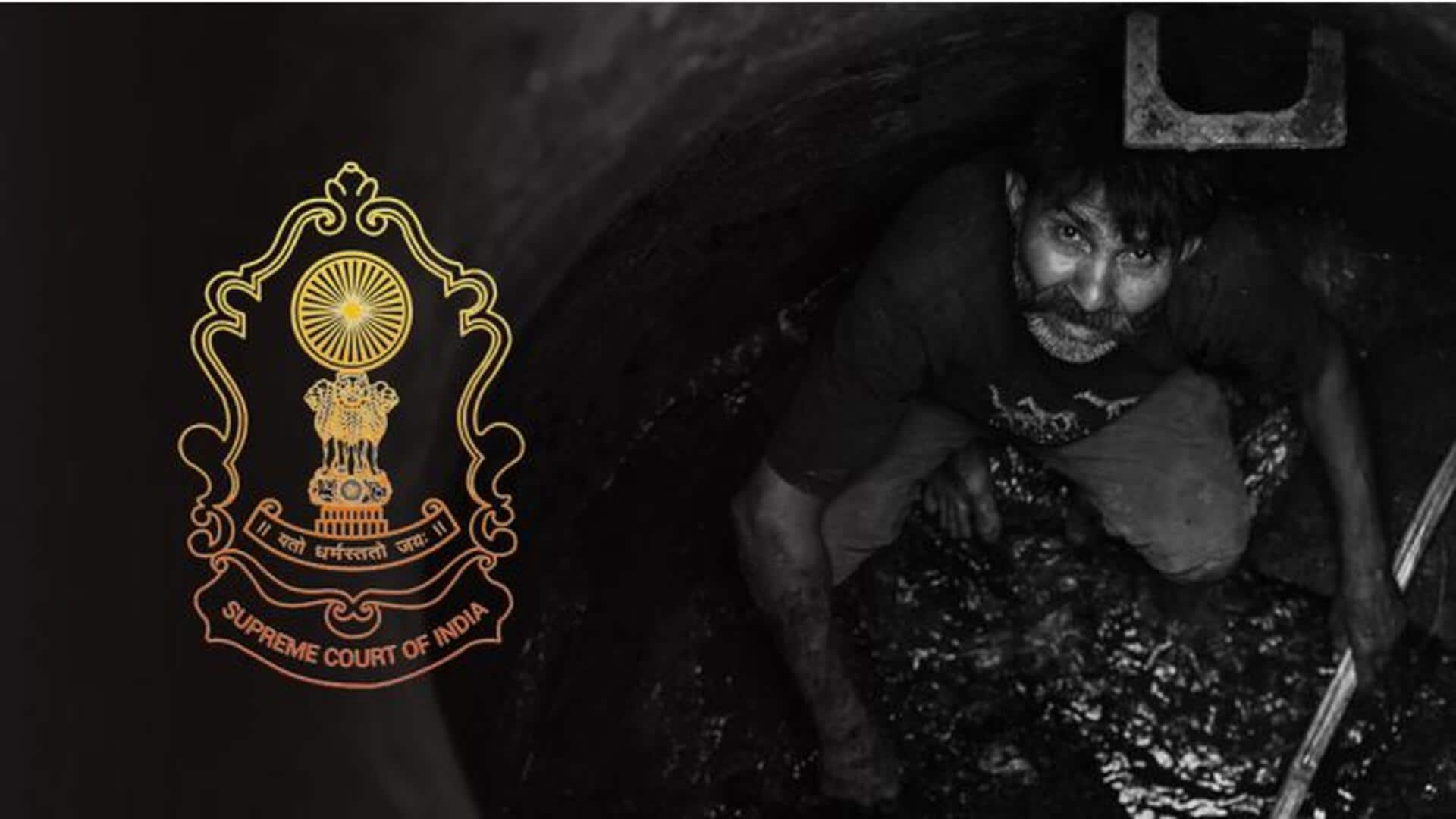
SC increases compensation to Rs. 30 lakh for sewer deaths
What's the story
The Supreme Court of India said on Friday that a compensation of Rs. 30 lakh will be paid to the kin of manual scavengers if they die during the cleaning process.
It also announced a compensation of Rs. 20 lakh in case of permanent disability during sewer cleaning and Rs. 10 lakh in case of other disabilities.
In June, the Union Ministry of Social Justice and Empowerment revealed that only 66% of districts in India are free from manual scavenging.
Context
Why does this story matter?
Manual scavenging is banned in India under the Manual Scavengers and their Rehabilitation Act Act, 2013. However, the job is still prevalent in many parts of India.
In 2014, SC guaranteed compensation of Rs. 10 lakh to the families of all the manual scavengers who had lost their lives in cleaning septic tanks from 1993 onwards.
In a separate verdict, the court pronounced clear guidelines on the rehabilitation of manual scavenging.
Details
SC bench stresses on complete elimination of manual scavenging
The SC bench, which comprised Justices S Ravindra Bhat and Aravind Kumar, stressed the importance of both the Centre and state governments in the complete elimination of manual scavenging from India.
It read out a complete list of directives, which also encompassed allowing high courts to oversee cases related to sewer deaths.
"Each of us owes to this large segment of the population, who have remained unseen, unheard and muted, in bondage systematically trapped in inhuman conditions," the bench stressed.
Manual scavenging
More about manual scavenging in India
This decision follows data presented in Lok Sabha in July 2022, which showed that 347 people had died while cleaning sewers and septic tanks in India over the past five years.
Uttar Pradesh, Tamil Nadu, and Delhi accounted for 40% of these fatalities.
One of the reasons that the practice is still common is that the act only bans manual scavenging if cleaners aren't given protective gear. However, the act doesn't define the gears.
SC
Several PILs filed for manual scavengers
In February, SC ordered the Central Government to document its measures to stop manual scavenging in the country, reported Oxford Rights Hub.
There have been multiple PILs filed across the country demanding proper compensation for the deceased as well as the eradication of the practice.
In 2014, the SC gave a landmark judgment in the Safai Karamchari Andolan vs. Union of India case, wherein it provided clear guidelines on the rehabilitation of the cleaners.